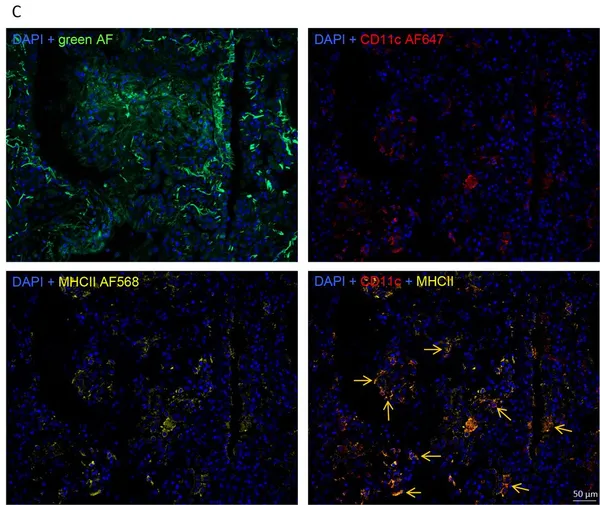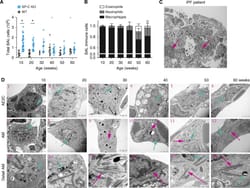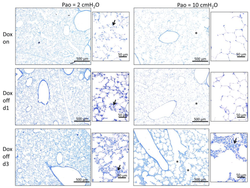Tort Tarrés, M., Aschenbrenner, F., Maus, R., Stolper, J., Schuette, L., Knudsen, L., Lopez Rodriguez, E., Jonigk, D., Kühnel, M.P., DeLuca, D., Prasse, A., Welte, T., Gauldie, J., Kolb, M.R., Maus, U.A.: Thorax. 2019;74(10):947-57.
To access the full article, click here:

Rationale Dendritic cells (DC) accumulate in the lungs of patients with idiopathic lung fibrosis, but their pathogenetic relevance is poorly defined.
Objectives To assess the role of the FMS-like tyrosine kinase-3 ligand (Flt3L)-lung dendritic cell axis in lung fibrosis.
Measurements and main results We demonstrate in a model of adenoviral gene transfer of active TGF-β1 that established lung fibrosis was accompanied by elevated serum Flt3L levels and subsequent accumulation of CD11bpos DC in the lungs of mice. Patients with idiopathic pulmonary fibrosis also demonstrated increased levels of Flt3L protein in serum and lung tissue and accumulation of lung DC in explant subpleural lung tissue specimen. Mice lacking Flt3L showed significantly reduced lung DC along with worsened lung fibrosis and reduced lung function relative to wild-type (WT) mice, which could be inhibited by administration of recombinant Flt3L. Moreover, therapeutic Flt3L increased numbers of CD11bpos DC and improved lung fibrosis in WT mice exposed to AdTGF-β1. In this line, RNA-sequencing analysis of CD11bpos DC revealed significantly enriched differentially expressed genes within extracellular matrix degrading enzyme and matrix metalloprotease gene clusters. In contrast, the CD103pos DC subset did not appear to be involved in pulmonary fibrogenesis.
Conclusions We show that Flt3L protein and numbers of lung DC are upregulated in mice and humans during pulmonary fibrogenesis, and increased mobilisation of lung CD11bpos DC limits the severity of lung fibrosis in mice. The current study helps to inform the development of DC-based immunotherapy as a novel intervention against lung fibrosis in humans.




